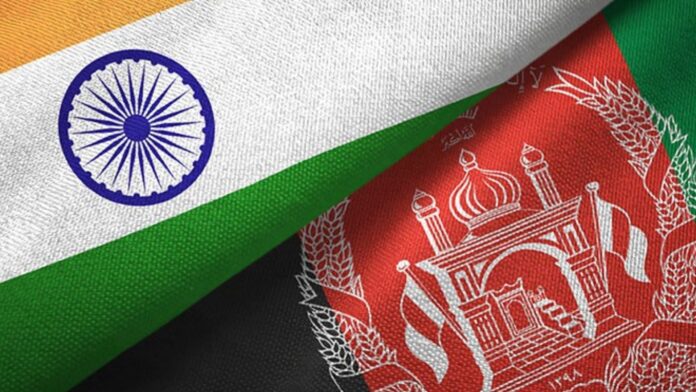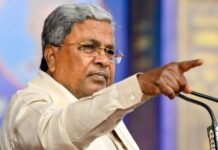On May 15 last, External Affairs Minister Dr. S Jaishankar sprang a surprise by speaking with the Acting Afghan Foreign Minister Mawlawi Amir Khan Muttaqi. India has not recognized the Taliban Government in Afghanistan yet. Why then did the Indian Foreign Minister speak with the Acting Foreign Minister? Actually, the significance of this conversation lies in the timing of it. It took place in less than a week after the Indo-Pak ceasefire was declared and the brief armed confrontation between the two countries was paused.
It is important to note that India and Afghanistan share a history longer than some earlier civilizations, with India extending a firm hand of aid, cooperation and recognition. Their relationship can be traced back to the Indus Valley Civilization.
But the history of this relationship has had its own ups and downs. Significantly, in the midst of America’s about two decades-long war against the Taliban forces, India had contributed a great deal towards nation-building process in that country. As per reports, more than $2 billion had been spent by India on various construction activities. However, withdrawal of American and NATO forces in 2021 and the return of the Taliban to govern Afghanistan had made it difficult for countries around the world, including India, to resume relations with the Taliban Government.
Since the Taliban government in Kabul sought to normalize ties with the international community and vowed not support terrorism in any form, some countries decided to reexamine their ties with the Taliban Government. Given Pakistan’s persistent support to anti-India terror groups and the despicable attack by Pak-backed terrorists in Pahalgam, Taliban’s conservative social policies and treatment of women could not be rationale for isolating the Taliban government for long.
And India’s initiation of the high-level contact with Afghanistan’s Taliban led government is perhaps the result of new thinking on India-Afghanistan relations. Afghan people desparetly need help. Indian-built infrastructure in Afghanistan also requires maintenance.
The highlight is that while India is yet to officially recognize the Taliban Regime of Afghanistan, it has made the first such outreach since the Taliban returned to power in August 2021. And the timing and the subject of this conversation is thus certainly not just a formality. It would not come as a surprise if India will turn towards rejuvenating its relationship with Afghanistan in coming years.
It is worth recalling that India has contributed over $2 billion for development works in Afghanistan financing construction of Parliament Building, India-Afghanistan Friendship Dam/Selma Dam, Hari River, Delaram Zaranj Highway and numerous Transmission lines.
Pakistan, on the other hand, has always been the biggest opponent of Indian presence in any form in Afghanistan, because it views Afghanistan as essential for achieving strategic depth. Pakistan never accepted India’s request to allow a direct land access to Afghanistan through its Khyber Pass or Bolan Pass for fear of rise of Indian influence in that country.
Pakistan has done little for developmental activities in Afghanistan. Its role has basically been negative. It nurtured extremists and terrorists and used them against other countries, including India.
The growing differences between the Taliban government and Pakistan in recent years do present an opportunity for India to resume its friendship and developmental works in Afghanistan.
Through these challenges, India’s first interest is to prevent Pakistan from gaining an edge within the governing structure of Afghanistan to an extent it can exert negative influence on decision making. Secondly, India seeks a positive role in Afghanistan’s developmental activities, which will make its investments safe and durable.Yet another challenge is dealing with the influence of Pakistani ISI over the Haqqani networks. Currently, Pakistan through ISI utilizes them to target Indians and Indian projects in Afghanistan. Haqqani networks operate purely with a monetary motive and lack any social or political ideology. ISI, on the other hand, promotes religious extremism and terrorism.
Concluding Thoughts
Afghanistan has repeatedly fallen victim to great power inferences and was exploited for decades for their respective strategic gains. The Soviets during the Cold War imposed puppet regimes in Kabul and tried to control Afghanistan ideologically. The US, during the same time, radicalized Afghans through Pakistan and Saudi Arabia to fight the Soviets, and then abandoned them post-conflict, giving rise to extremist groups like Al Qaeda. Pakistan, meanwhile, has consistently destabilized Afghanistan by supporting militant groups to serve its regional interests.
India’s engagement with Afghanistan stands in stark contrast to the exploitative strategies of other powers. While the Soviet Union and the United States weaponized ideologies and militancy through forced regime changes and proxy wars, and Pakistan consistently destabilized Afghanistan to pursue strategic depth and execute anti-India agendas, India upheld a policy grounded in non-interference, mutual respect, socio-economic growth and long-term stability.
India’s support to Afghanistan was never about regime control or geopolitical manipulation, but about securing its own national interests while safeguarding Afghan autonomy. From extending recognition to various Afghan governments-be it Najibullah’s or the Mujahedeen-led Rabbani regime-to initiating humanitarian efforts post-2001, India focused on people-to-people ties, reconstruction, education, and development without imposing conditionalities.
India’s approach–conciliatory, inclusive, and culturally rooted–has earned it unprecedented goodwill among Afghan people. Even the Taliban, once distant, now acknowledges India’s role positively. This enduring trust is a testament to India’s ethically grounded foreign policy-a rare chapter of solidarity over self-interest in Afghanistan’s tumultuous history.








